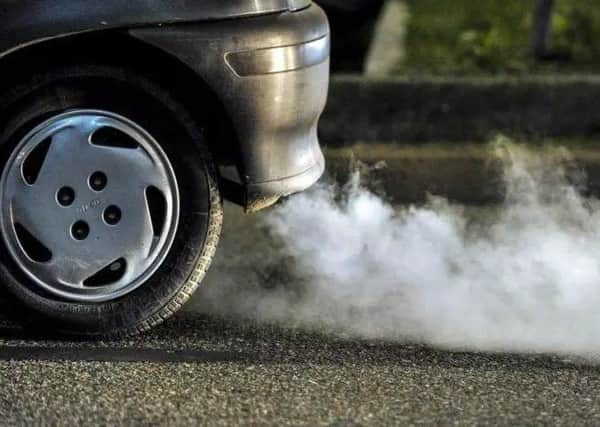Warning over '˜blanket ban' on diesel cars in Leeds


Leeds City Council is one of 29 local authorities identified in the Government’s air quality plans in July as having roads breaching legal pollution levels.
It now has until March next year to publish draft plans to address the problem – and observers say diesel vehicles are expected to be targeted with new restrictions or fines.
Advertisement
Hide AdAdvertisement
Hide AdOxford and Cambridge are among the local authorities who have already announced their intention to ban all diesel vehicles, including buses.
But while Clean Air Zones are vital to addressing this public health emergency, implementing a blanket ban on all diesel vehicles would have disastrous consequences for the environment, economy and society, according to David Begg, Visiting Professor at Plymouth University and former chairman of the Government’s Commission for Integrated Transport.
Prof Begg is calling on Leeds City Council to stop short of a blanket ban and instead target older diesel cars, which are the biggest contributors to air pollution, making up 41 per cent of nitrogen dioxide emissions from road transport, compared with 30 per cent for diesel vans and six per cent for buses and coaches.
He warned that banning all diesel vehicles from city centres would “demonise and penalise” the latest generation of clean British diesel buses, which bring huge environmental and economic benefits. Such a ban, he warns, could prompt an 80 per cent cut in bus services, leading to a 22 per cent cut in employment; an 11 per cent reduction in adult skills; and a 29 per cent increase in social deprivation.
Advertisement
Hide AdAdvertisement
Hide AdProf Begg’s warning comes as an unprecedented bus sector coalition led by Greener Journeys, the sustainable transport campaign, urges local decision-makers to recognise the economic, environment and social benefits of the new generation of clean British diesel buses, technically known as Euro VI buses, and put them at the heart of their plans to improve local air quality.
Fitting older bus engines with exhaust clean-up technology – known as retrofitting – or repowering the bus with a new engine and exhaust after-treatment system can bring them up to Euro VI emissions standards. It is the quickest and most cost-effective way for local authorities to tackle roadside pollution.
Real-world testing of bus engines shows that the latest generation of certified clean buses emit 95% fewer NOx emissions than the previous generation. Furthermore, these buses emit fewer emissions overall than the average diesel Euro 6 car despite having 15 to 20 times the capacity. Unlike cars, they undergo independent testing and certification.
Prof Begg said: “While local government rightly try to take dirty diesel vehicles off the streets, there is a danger they will demonise and penalise a new generation of independently-tested clean diesel buses that are in fact part of the solution, not the problem, to excessive air pollution.
Advertisement
Hide AdAdvertisement
Hide Ad“We must be aware of unintended consequences of waging war on diesel, and avoid tarring these incredibly clean buses with the same brush as the toxic car fleet on our roads today.
“Instead, we need to tackle the older diesel cars and vans that are clogging up our streets.
“If buses are viewed as the problem, and not integral to the solution, then the unintended consequence will be more polluting cars on the road and poorer air quality.”
Claire Haigh, Chief Executive of Greener Journeys, said: “Britain’s streets are clogged with high polluting diesel cars which are causing a public health emergency and costing tens of thousands of lives each year.
Advertisement
Hide AdAdvertisement
Hide Ad“If local authorities are serious about tackling air pollution, they must put this new generation of clean British diesel buses, and buses retrofitted to the same low-emission standard, front and centre of their plans.”
Councillor Lucinda Yeadon, Leeds City Council’s executive board member with responsibility for sustainability and the environment said the authority is “currently undertaking detailed modelling and research into what a potential clean air zone could look like in Leeds”.
“Improving our air quality is important for the health of everyone who lives in the city and we will be working closely with bus operators as we move forward with any plans,” she said.